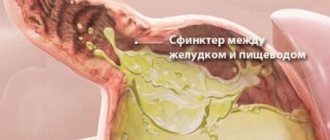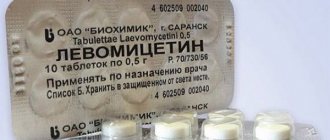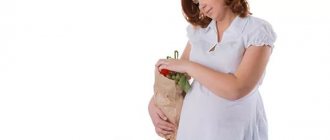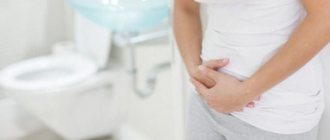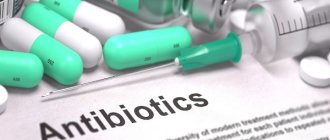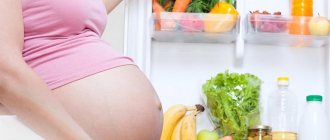Diarrhea during pregnancy, especially in the third trimester, is not a very pleasant and completely undesirable phenomenon. Carrying a child and giving birth is a long-awaited and important period in the life of any woman, and any deviations in the health of the expectant mother, in which diarrhea is noted, pose a certain danger to her and the baby. Let's look at the probable causes of diarrhea in the second and third trimesters of pregnancy, the characteristics of the female body's reactions during this period, and possible safe treatment.
Diarrhea is a bowel movement disorder in which the consistency and frequency of bowel movements changes. It can be episodic or repeated and is often accompanied by other unpleasant symptoms: intestinal colic, flatulence, fever and the development of dangerous dehydration. Therefore, the main treatment for severe diarrhea during pregnancy is rehydration therapy.
Specifics of the condition
Diarrhea is a digestive disorder accompanied by severe pain in the abdominal area and frequent stools that are foamy, watery, or mushy in nature. Diarrhea in pregnant women is a kind of manifestation of the body to changes occurring in the hormonal sphere, as well as toxins and viruses, allergens, etc. Typically, the appearance of diarrhea during pregnancy in the third trimester is accompanied by headaches and hyperthermic conditions, intestinal spasms and flatulence, nausea and vomiting syndrome or chills and general weakness.
If the manifestations of diarrhea are mild, then there is no need to fear for the baby or your own health. Typically, such digestive disruptions do not last more than 5-7 days and do not in any way harm the normal development and course of gestation. But there are several signs by which you can understand that qualified medical care is needed.
- If there are bloody or mucous impurities in the stool;
- Black color of stool against a background of weakness and dizziness;
- Long-lasting diarrhea with vomiting and hyperthermia.
If such symptoms occur, a woman must respond immediately. Perhaps loose stools during pregnancy indicate that the mother has internal bleeding, an exacerbation of a peptic ulcer, so you need to urgently go to the hospital.
Is diarrhea normal during pregnancy?
Loose stools in expectant mothers can be a direct consequence of pregnancy. In the early stages, it happens due to hormonal changes in the body. A little later, it may appear due to the fact that a woman’s eating habits change or as an individual reaction to medications or vitamin complexes prescribed to her.
In later stages, diarrhea (as well as constipation) can again be caused by hormonal changes, and the pressure of a growing and heavier uterus also affects intestinal function.
However, all these cases should be treated with skepticism - it is better to play it safe and consult a doctor. Diarrhea caused by natural causes and not dangerous for pregnant women, as a rule, is short-lived and is not accompanied by additional discomfort.
That is, with it there are no characteristic abdominal pains, there is no mucus or blood impurities in the stool, the body temperature does not rise, the stomach does not twist, etc.
Causes of diarrhea
Self-administration of pills is prohibited
Experts have been able to prove that diarrhea during pregnancy in the third trimester is often a manifestation of the mother’s body preparing for labor, which will occur in the near future. If the gestational age is less than 37 weeks, then the causes of diarrhea may be due to premature birth, so you should urgently go to the maternity hospital.
Diarrhea is manifested by changes in the frequency and consistency of bowel movements; it can be episodic or repeated. In addition to the approaching birth, diarrhea during pregnancy may also indicate pathologies. This condition is typical for digestive and intestinal pathologies such as pancreatitis or mucous colitis, etc. Also, the causes of diarrhea are caused by an unhealthy diet that causes disruption of the intestinal microflora, food poisoning or nervous disorders.
Infectious pathologies such as botulism, dysentery, and salmonellosis are also quite common causes of diarrhea in mothers in the third trimester of pregnancy. Also, similar stool disorders occur due to parasitic infestations or due to insufficient enzymatic activity. Among the pathological causes of diarrhea, one can also identify conditions such as pancreatitis, cholecystitis, hepatitis or gastritis, which quite often worsen during pregnancy.
Can diarrhea harm a pregnant woman?
Depending on the cause of the phenomenon, the danger to the fetus is determined. Diarrhea in pregnant women with an increase in body temperature is a reason to immediately call a doctor.
Danger in early pregnancy
- Decreased immunity;
- Intoxication at a temperature of 38°C;
- Dehydration;
- Lack of blood flow;
- Reduced blood pressure;
- Kidney failure;
- Pneumonia.
When an infection or virus enters the body, a woman feels weak, drowsy, and her skin turns pale. The body's defenses are redirected from protecting the fetus to fighting infection. Immunity decreases.
If the patient's body temperature is above 38 degrees, blood pressure is below 100/70, the body is dehydrated, density increases and blood circulation slows down. Mother and fetus lack oxygen. The simultaneous production of oxytocin (with a lack of blood flow) causes uterine contractions, causing miscarriage.
Danger in late pregnancy
- thrombosis, gestosis;
- oligohydramnios;
- premature birth;
- decreased immunity.
Complications during pregnancy occur as a result of dehydration, increased blood viscosity, and intestinal tone. The urge to defecate stimulates uterine contractions. Given the high concentration of oxytocin (the contraction hormone) in the blood, the risk of miscarriage, especially in late pregnancy, increases by 30–35%.
After the 37th week of pregnancy, frequent diarrhea, which is not dangerous if you feel normal, is a sign of the imminent onset of contractions (5–10 days). At the same time, if the diarrhea is not foamy, without impurities, or brown in color, there is no reason to consult a doctor.
Danger of stool disorder
Sometimes the occurrence of diarrhea in the 3rd trimester of pregnancy can seriously threaten the mother and the pregnancy as a whole. The degree of risk depends on the cause and nature of the bowel disorder. If the diarrhea is not severe, short-lived, and does not have additional toxic symptoms, then the mother has no reason to worry. Diarrhea shortly before delivery is also harmless, since it is a self-cleansing reaction of the body. In the early stages of gestation, intense diarrhea is dangerous due to hypertonicity of the uterine body, which is fraught with interruption.
In general, bacterial-viral pathogens live within the confines of the intestines, so they are not capable of harming the fetus in any way, although there are always exceptions. In such a situation, cases of severe poisoning deserve special attention, when there is a high probability of intoxication of the pregnant body, while dangerous toxic substances can penetrate directly into the fetal tissue. Therefore, during the gestation period, it is necessary to strictly control the diet, excluding foods that are dangerous for poisoning, for example, mushrooms, etc. If food poisoning turns out to be not serious, then this condition does not pose any threat to the child.
- The main threat with diarrhea is dehydration of the body. A similar condition occurs when diarrhea is pronounced, and the mother runs to the toilet more than 5 times a day, then a water-salt imbalance occurs, causing disruptions in the functioning of the entire body.
- For a baby, a lack of vitamins and minerals interferes with normal fetal development.
- In severe cases of dehydration, there is a high risk of developing various fetal defects and even miscarriage or premature birth.
- To avoid dangerous complications, it is necessary to closely monitor the condition. The development of dehydration is indicated by symptomatic manifestations such as dry mouth, extreme thirst, dizziness, dark urine and lack of urination, drowsiness and irritability.
- To eliminate the unfavorable causes of complications, you need to do everything possible to prevent severe fluid losses, and you also need to regularly replenish the water lost through diarrhea.
- Diarrhea that occurs at 35-37 weeks is also dangerous for the fetus and the patient, because it washes away a lot of beneficial micronutrients and vitamin components. As a result, fetal starvation and even thrombosis develop.
It follows that only severe and prolonged diarrhea can be dangerous for pregnant women. If the stool disorder is minor, then the fetus and the health of the mother are not in danger. But if a woman has doubts about her own condition, it is better to visit a doctor unscheduled.
Directions of therapy
Diarrhea during late pregnancy is uncommon. It cannot be ignored:
- The main direction of therapy for the expectant mother is detoxification of the body and prevention of dehydration. When fluid is lost, beneficial microelements are also washed out. A temporary lack of electrolytes negatively affects a woman’s well-being.
- If diarrhea occurs, it is recommended to drink plenty of water and take medications that normalize salt balance. A popular drug is Regidron.
- If a woman has food poisoning, then after consulting a doctor, you can take the sorbent recommended by him. It is necessary to follow the instructions exactly and not exceed the calculated dose. Drugs approved during pregnancy effectively remove toxins and help restore the body. Smecta and activated carbon are popular. Medicines do not penetrate into the systemic circulation. They are safe for the baby, but effective for the expectant mother.
With infections of various etiologies, diarrhea can be prolonged, without significant additional symptoms. In this case, consultation with a specialist is necessary. Based on the tests, he prescribes effective therapy for the disease. A doctor’s adequate view of the problem helps to quickly eliminate the causes. It is not recommended to neglect help.
How to treat diarrhea
If you feel unwell, consult a doctor immediately
Many mothers, faced with diarrhea, due to their interesting situation, do not know what to do or how to treat the stool disorder that has arisen. This issue must be approached with the utmost caution. First, you should undergo an examination to identify the root causes of the disorder. If diarrhea is only a temporary phenomenon that arose as a result of errors in nutrition, then you need to change your diet, eliminating dangerous foods from it.
If diarrhea is a consequence of any pathological condition or a symptom of a disease, then appropriate drugs that are safe for the fetus are prescribed. In this situation, some difficulties may arise, since many medications during pregnancy are strictly prohibited for the mother. If the situation is not so serious, then it is necessary to adjust the diet and turn to folk recipes.
In general, therapy for diarrhea during pregnancy has only two features. Firstly, you need to choose drugs that are safe for the fetus and do not cause gestational complications. Secondly, even folk remedies, if used incorrectly, can harm the expectant mother. Therefore, you must first consult with a gynecologist regarding the folk remedies you are taking. Some may experience allergies, hyperedema and other non-standard reactions of the body.
The mother should tell the doctor what foods she has consumed over the past 24 hours, what symptoms are bothering her, what medications the pregnant woman is currently taking, and whether she has been bothered by psycho-emotional shocks. Based on the anamnestic information obtained, the doctor will be able to establish a diagnosis and select the most effective therapeutic tactics. If the need arises, additional laboratory diagnostics are performed.
Medicines
Any medications should be prescribed only by an obstetrician-gynecologist. Only a specialist knows what diarrhea can be done for pregnant women. The prescription of medications depends on the etiology of the stool disorder. So, treatment of diarrhea during gestation is carried out using the following medications:
- Preparations of the sorbent group, which include activated carbon, Smecta, Enterosgel, etc. These medications have virtually no contraindications, they are not able to penetrate the bloodstream, therefore they are safe for pregnant women at any stage. Sorbents accumulate toxic and medicinal components, so they must be taken separately from other drugs.
- Antidiarrheal drugs like Imodium or Loperamide. These drugs can already be taken in the third trimester without fear for the baby and pregnancy.
- Antispasmodic drugs like Papaverine and No-shpa are prescribed to eliminate uncontrolled spasms in the structures of the abdominal cavity.
- To restore healthy microflora, the patient is advised to take Linex or Hilak Forte.
- The doctor may also prescribe Nifuroxazide. This drug is an effective antimicrobial medication that quickly eliminates diarrheal symptoms.
- If a mother is diagnosed with a severe infectious pathology, then safe antibiotics are prescribed, but this is an extreme measure that requires a competent approach.
All medications should be prescribed only by an obstetrician-gynecologist, who will select the optimal dosage and regimen for the mother. Then drug therapy for diarrhea will be successful and safe.
Home methods
Rice dishes help relieve indigestion
With some stool disorders, mothers can be helped by folk remedies that not only fix the stool, but also help normalize all digestive processes. Rice water is considered one of the best remedies for diarrhea in pregnant women. You need to boil 2 large spoons of cereal for half an hour in 0.5 liters of water. Then the mass is ground, cooled and drunk.
Starch water also helps to cope with the problem of stool disorders. Thoroughly dissolve a large spoonful of potato starch in 100 ml of water and drink. It is also useful for diarrhea to take blueberry jelly, which is drunk after meals. An infusion of pomegranate peels is also useful, for the preparation of which you brew a large spoonful of crushed fruit peels with a glass of boiling water.
If the stool is upset due to psycho-emotional experiences, then it is recommended to drink mint tea several times a day. You can also take advantage of the effects of medicinal herbs, however, they can only be taken if you are not prone to allergies. Herbs such as thyme or wormwood, St. John's wort or cinquefoil, linden bark and blackberry leaves, walnut leaves, etc. are safe for pregnant women.
Nutrition for diarrhea
On the first day after the onset of diarrhea, a woman should refuse to eat; it is better to limit herself to drinks, drinking liquid in large quantities. Compotes and all kinds of fruit drinks, tea or just drinking water are ideal for this. Such a fast will help the body unload and prevent the development of dehydration. If you exclude food that is completely unbearable, then you can eat a small amount of white bread crackers.
On the second day, you can eat unleavened viscous porridge made from oatmeal or rice. Instead of one meal, you can drink rice water, which will be a completely worthy alternative. If you have diarrhea, do not eat salty, spicy or fatty foods, fermented milk or meat products, fruits and juices, carbonated drinks and meat.
Is it possible to use IMODIUM® Express in early pregnancy?
IMODIUM® Express is an antidiarrheal drug in the form of lozenges. The active substance of the drug is loperamide, which has no data on its teratogenic or embryotoxic effects. However, the drug cannot be used at any stage of pregnancy. According to the instructions, use is not allowed in the first trimester and during breastfeeding1. In the second and third trimesters, IMODIUM® Express can only be taken on the recommendation of a doctor1. An antidiarrhea drug is prescribed only if the expected benefit to the woman outweighs the risk to the fetus. Before use, you should consult a specialist and read the instructions.
The information in this article is for reference only and does not replace professional advice from a doctor. To make a diagnosis and prescribe treatment, consult a qualified specialist.
1 According to the instructions for medical use of the drug IMODIUM® Express.
* Among products based on Loperamide. Based on sales in money for February 2021 - January 2021, according to IQVIA (from English IQVIA).
Prevention of an unpleasant condition
Mothers with diarrhea during gestation should follow medical recommendations to prevent the development of stool disorders. To do this, you must follow hygienic rules of personal hygiene, eat only healthy food, rich in healthy and fresh foods. Also, in order to avoid various pathologies, mothers are recommended to take special vitamin complexes for pregnant women. You should avoid visiting cafes where the cuisine is of dubious quality; it is better to dine at home.
Diarrhea during gestation can become a serious problem for a mother, but with timely adoption of appropriate therapeutic measures, the disease can be quickly stopped. You should not buy food on the street, imported fruits, etc. It is also better to avoid eating baked goods, coffee, and tea. In order for digestive functions to be restored more quickly, it is recommended to exclude fresh fruits and vegetables from the diet. You need to eat fractionally, in small portions.
For any ailments, it is recommended to consult a specialist. Any treatment during gestation is prescribed by a doctor. The sooner you visit the doctor, the easier it is to stop unpleasant symptoms without putting your baby at risk.
Safe symptoms
- First trimester of pregnancy - pasty diarrhea, 3-4 times a day (toxicosis, hormonal changes);
- Second trimester of pregnancy - alternating loose diarrhea and constipation (the uterus grows);
- Third trimester of pregnancy - liquid stool in the morning, without impurities, after 37 weeks (early birth).
Diarrhea, accompanied by a temperature above 37.8ºC, nausea, vomiting, fever, at any stage of pregnancy is a dangerous sign. Even if the stool is of normal color and the stomach does not hurt, an urgent call to the doctor is required (for a period of 34 weeks or more - the emergency room).
How to safely treat diarrhea during pregnancy
Self-medication for diarrhea in a pregnant woman is unacceptable; only a gastroenterologist will determine what to do in a particular case. When calling a doctor at home, the therapist will prescribe acceptable symptomatic treatment - enterosorbents. Safe drugs during pregnancy - Enterosgel, Polysorb. The substance absorbs and removes toxins, prevents dehydration, and stops diarrhea.
- warm drink from 2 l. per day;
- exclusion of pickled, fatty, salty, smoked foods;
- crushed meals - 5 times a day, in small portions;
- strong tea with crackers – 4 times a day;
- prebiotics – Acipol, Linex, Bifiform (available without a prescription);
- porridge with water - rice, buckwheat, wheat (can be corn + rice);
- vegetables – boiled carrots, corn, potatoes, cucumbers, broccoli (not>300 g per day);
- meat – lean beef, chicken, turkey (cook without skin);
- lean fish - cod, pike perch;
- jelly, compotes of blackcurrant, rosehip, blueberry.
The diet is followed for 7–10 days. Pork, sausage, sausages are allowed only 14 days after the end of diarrhea, 50–100 g per day. Black tea, jelly, and rosehip decoctions are good for fixing stools. It is recommended to take throughout the entire gestation period.
